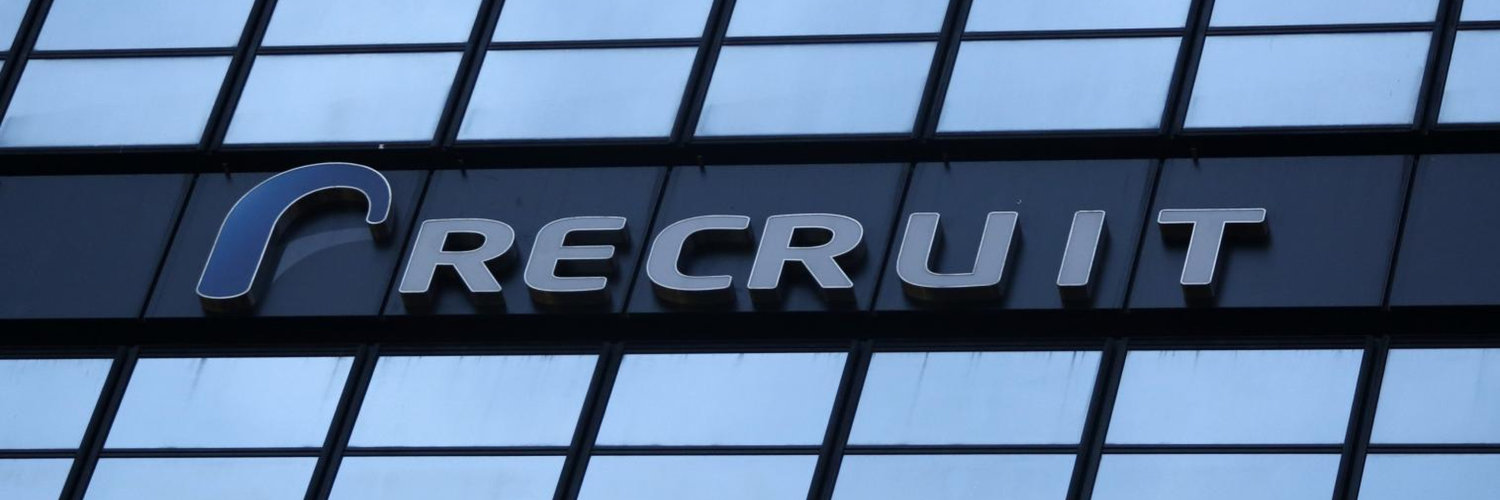

Recruit Holdings Co Ltd
TSE:6098

Recruit Holdings Co Ltd
Nestled in the bustling metropolis of Tokyo, Recruit Holdings Co., Ltd. has evolved into a titan of the service industry, orchestrating a diverse range of operations that span across recruitment, HR technology, and staffing solutions. Emerging from its modest beginnings in 1960 as an advertising agency specializing in university newspapers, Recruit has morphed into a global powerhouse, largely through its strategic and transformative acquisitions. Notably, the company's audacious acquisition of the American job site Indeed in 2012 marked a significant leap in its international expansion strategy, propelling Recruit into the realms of digital job matching services. This became a cornerstone of its business operations, enabling it to tap into the lucrative data-driven recruitment market by leveraging advanced algorithms and a vast trove of user data to effectively match employers with candidates.
Recruit Holdings operates under a diversified portfolio with three central pillars delineating its expansive business model: HR Technology, Media & Solutions, and Staffing. The HR Technology segment, headlined by Indeed and fellow acquisition Glassdoor, is a dynamic growth engine, generating revenue primarily through job advertisement fees paid by employers seeking talent on its platforms. Meanwhile, the Media & Solutions division covers life events and lifestyle fields, offering a range of information and services in the way of classified advertisements, promotional content, and reservation systems, often monetized via a transaction or subscription-based model. Finally, the Staffing segment sustains a steady stream of income by connecting temporary workers with employers, charging fees for the placements. Through this pragmatic blend of services, Recruit Holdings adeptly maneuvers across various markets, continuously diversifying its revenue streams while maintaining a sharp focus on innovation and technology integration.

Nestled in the bustling metropolis of Tokyo, Recruit Holdings Co., Ltd. has evolved into a titan of the service industry, orchestrating a diverse range of operations that span across recruitment, HR technology, and staffing solutions. Emerging from its modest beginnings in 1960 as an advertising agency specializing in university newspapers, Recruit has morphed into a global powerhouse, largely through its strategic and transformative acquisitions. Notably, the company's audacious acquisition of the American job site Indeed in 2012 marked a significant leap in its international expansion strategy, propelling Recruit into the realms of digital job matching services. This became a cornerstone of its business operations, enabling it to tap into the lucrative data-driven recruitment market by leveraging advanced algorithms and a vast trove of user data to effectively match employers with candidates.
Recruit Holdings operates under a diversified portfolio with three central pillars delineating its expansive business model: HR Technology, Media & Solutions, and Staffing. The HR Technology segment, headlined by Indeed and fellow acquisition Glassdoor, is a dynamic growth engine, generating revenue primarily through job advertisement fees paid by employers seeking talent on its platforms. Meanwhile, the Media & Solutions division covers life events and lifestyle fields, offering a range of information and services in the way of classified advertisements, promotional content, and reservation systems, often monetized via a transaction or subscription-based model. Finally, the Staffing segment sustains a steady stream of income by connecting temporary workers with employers, charging fees for the placements. Through this pragmatic blend of services, Recruit Holdings adeptly maneuvers across various markets, continuously diversifying its revenue streams while maintaining a sharp focus on innovation and technology integration.
Guidance Raised: Recruit Holdings again raised its full-year consolidated financial guidance, citing strong HR Technology performance and yen depreciation; revenue outlook now JPY 3,664.7 billion and basic EPS JPY 335.
Record Highs: Full-year revenue, EBITDA, EBITDA+S, profit attributable to owners, and basic EPS are all expected to hit new record levels.
HR Tech Outperformance: U.S. HR Technology Q3 revenue was $1.3 billion, up 10.1% YoY and above guidance, driven by an 18% growth in average revenue per job (ARPJ); Q4 U.S. revenue is projected at $1.33 billion, up 12.4% YoY.
MMT Model Evolution: Marketing Matching Technologies (MMT) introduced a GMV-linked revenue model in Beauty, expected to add JPY 12 billion revenue next year, with plans to expand this model to other verticals.
Margin Expansion: MMT aims for EBITDA+S margins of 30% next fiscal year and 35% by FY 2028, driven by AI integration and business model changes.
Shareholder Returns: The JPY 250 billion share buyback program was completed, bringing the total payout ratio to 176.7%.
AI and In-Person Jobs: Indeed’s U.S. job ad revenue remains heavily weighted to in-person roles, which are less susceptible to AI disruption; about two-thirds of U.S. paid job ads are in these categories.
Management
Hisayuki Idekoba, often known as Deko, is a prominent Japanese business executive and the CEO of Recruit Holdings Co., Ltd., a leading global company that provides integrated human resource services. Born on October 30, 1977, Idekoba graduated from the University of Tsukuba with a degree in International Political Economy. Idekoba joined Recruit in 1999 and quickly rose through the ranks due to his innovative approach and leadership skills. He played a significant role in transforming Recruit's business model, especially in its shift towards digital and technological solutions. His strategic vision was instrumental in the global expansion and digital transformation of the company. In April 2021, Idekoba was appointed as the CEO of Recruit Holdings. Under his leadership, the company has focused on expanding its HR Technology segment, which includes Indeed and Glassdoor, two of the world's largest job and recruiting sites. Deko is known for advocating a decentralized management style, empowering employees to make decisions and encouraging a culture of innovation. Idekoba's leadership is marked by an emphasis on technological adoption and responding to changing work environments, trends, and the growing importance of remote work solutions. Through his strategic initiatives, Recruit Holdings continues to play a significant role in reshaping the global employment landscape.
Idekoba joined Recruit in 1999 and quickly rose through the ranks due to his innovative approach and leadership skills. He played a significant role in transforming Recruit's business model, especially in its shift towards digital and technological solutions. His strategic vision was instrumental in the global expansion and digital transformation of the company.
In April 2021, Idekoba was appointed as the CEO of Recruit Holdings. Under his leadership, the company has focused on expanding its HR Technology segment, which includes Indeed and Glassdoor, two of the world's largest job and recruiting sites. Deko is known for advocating a decentralized management style, empowering employees to make decisions and encouraging a culture of innovation.
Idekoba's leadership is marked by an emphasis on technological adoption and responding to changing work environments, trends, and the growing importance of remote work solutions. Through his strategic initiatives, Recruit Holdings continues to play a significant role in reshaping the global employment landscape.
Ayano Senaha is a prominent executive at Recruit Holdings Co., Ltd., a leading global provider of integrated human resources solutions and technology. Senaha plays a critical role in the company's strategic direction and operations. She has been instrumental in driving Recruit Holdings' mission to simplify hiring and empower businesses and individuals through technology. Senaha's career at Recruit Holdings has been marked by her forward-thinking approach and commitment to innovation. She has overseen significant projects that have expanded the company's offerings in HR technology and digital transformation, ensuring Recruit Holdings remains at the forefront of the industry. Her leadership style emphasizes collaboration, inclusivity, and leveraging technology to address evolving market needs. Her experience and expertise in business strategy and operations have been crucial in navigating the complex landscape of global HR solutions. Under her leadership, Recruit Holdings continues to thrive, with a focus on sustainable growth and adaptation to emerging trends in the workforce and technology sectors.
Senaha's career at Recruit Holdings has been marked by her forward-thinking approach and commitment to innovation. She has overseen significant projects that have expanded the company's offerings in HR technology and digital transformation, ensuring Recruit Holdings remains at the forefront of the industry. Her leadership style emphasizes collaboration, inclusivity, and leveraging technology to address evolving market needs.
Her experience and expertise in business strategy and operations have been crucial in navigating the complex landscape of global HR solutions. Under her leadership, Recruit Holdings continues to thrive, with a focus on sustainable growth and adaptation to emerging trends in the workforce and technology sectors.
Akihiko Mori serves as an executive officer at Recruit Holdings Co., Ltd., a global provider of integrated human resource services headquartered in Tokyo, Japan. Recruit Holdings is widely known for its operations in areas such as staffing, job placements, and technology-based HR solutions. Although detailed personal biographical information about Akihiko Mori, such as his educational background and career trajectory, is limited, his role as an executive officer places him in a position of significant responsibility within the company. Executive officers at Recruit Holdings are typically involved in strategic decision-making and operational management to drive the company's growth and innovation in its various business segments. For specifics about his contributions or any recent developments, it would be best to refer to official company announcements or financial reports from Recruit Holdings.
For specifics about his contributions or any recent developments, it would be best to refer to official company announcements or financial reports from Recruit Holdings.
Junichi Arai is an executive at Recruit Holdings Co., Ltd., a prominent human resources and recruitment company based in Japan. He currently serves as the Senior Managing Corporate Executive Officer and is in charge of the Corporate Planning Division. With a significant tenure at Recruit Holdings, Arai has played a key role in shaping the company's strategic direction and overseeing its corporate planning initiatives. Throughout his career at Recruit Holdings, Arai has been instrumental in steering the company's growth and expansion, ensuring that it remains competitive in the rapidly evolving recruitment and HR technology sectors. His leadership and expertise have contributed to the company's ability to adapt to market changes and leverage new opportunities for innovation and development.
Throughout his career at Recruit Holdings, Arai has been instrumental in steering the company's growth and expansion, ensuring that it remains competitive in the rapidly evolving recruitment and HR technology sectors. His leadership and expertise have contributed to the company's ability to adapt to market changes and leverage new opportunities for innovation and development.
Ms. Mio Kashiwamura is an executive officer at Recruit Holdings Co., Ltd., a leading Japanese company renowned for its diverse business operations, particularly in staffing and human resources services. In her role, Ms. Kashiwamura brings extensive experience and a strategic outlook to the company, contributing to its growth and innovation initiatives. Her leadership is instrumental in driving Recruit Holdings’ objectives in creating value across its platforms and expanding its global reach. Her career reflects a strong commitment to fostering inclusive workplaces and enhancing organizational effectiveness through innovative solutions.
Keiichi Sagawa is an executive at Recruit Holdings Co., Ltd., a prominent Japanese human resources and information services company. Sagawa has had a significant career within the Recruit Group and has occupied various key positions. Notably, he served as the Chief Financial Officer (CFO) of Recruit Holdings, where he played a critical role in managing the company’s financial operations and strategies, contributing to its global expansion and success. His leadership experience in financial management and strategic planning has been crucial in guiding Recruit Holdings through its diverse business operations, which include HR technology, staffing, and various digital services. Sagawa is recognized for his expertise in corporate finance and his contributions to fostering innovation and growth within the company. His work at Recruit Holdings has underscored the importance of financial discipline and strategic investment, supporting the company's aim to simplify hiring processes and empower people with greater access to services across different sectors globally.
His leadership experience in financial management and strategic planning has been crucial in guiding Recruit Holdings through its diverse business operations, which include HR technology, staffing, and various digital services. Sagawa is recognized for his expertise in corporate finance and his contributions to fostering innovation and growth within the company.
His work at Recruit Holdings has underscored the importance of financial discipline and strategic investment, supporting the company's aim to simplify hiring processes and empower people with greater access to services across different sectors globally.
As of the latest available information, Yoshihiro Kitamura is an executive at Recruit Holdings Co., Ltd., a prominent Japanese company known for its diverse business operations, including human resources technology, staffing, and business support. Recruit Holdings, headquartered in Tokyo, is particularly distinguished for owning Indeed.com and Glassdoor, major job search and employer review platforms. Yoshihiro Kitamura has been associated with Recruit Holdings in various capacities. His professional journey within the company reflects significant contributions, especially in areas such as corporate leadership and strategic development. His roles have typically involved overseeing operations and contributing to the development of strategic objectives at Recruit Holdings. Kitamura's expertise lies in business management and organizational development, where he has played a pivotal role in driving growth and efficiency within the company. His leadership style is often characterized by a focus on innovation and adapting to changing market conditions, which aligns with Recruit Holdings' emphasis on staying ahead in the competitive HR technology and staffing sectors. For the most current and detailed information regarding his role and contributions, it is advisable to refer to Recruit Holdings' official communications or recent corporate profiles.
Yoshihiro Kitamura has been associated with Recruit Holdings in various capacities. His professional journey within the company reflects significant contributions, especially in areas such as corporate leadership and strategic development. His roles have typically involved overseeing operations and contributing to the development of strategic objectives at Recruit Holdings.
Kitamura's expertise lies in business management and organizational development, where he has played a pivotal role in driving growth and efficiency within the company. His leadership style is often characterized by a focus on innovation and adapting to changing market conditions, which aligns with Recruit Holdings' emphasis on staying ahead in the competitive HR technology and staffing sectors.
For the most current and detailed information regarding his role and contributions, it is advisable to refer to Recruit Holdings' official communications or recent corporate profiles.
Dr. Rob Zandbergen is a noted figure in the staffing and recruitment industry, with a substantial career built around leadership roles in various companies. Before joining Recruit Holdings Co., Ltd., Dr. Zandbergen held key positions such as the CEO of Recruit Global Staffing B.V., the staffing arm of Recruit Holdings, where he played an integral role in international business expansion and operational improvements. Dr. Zandbergen has a strong background in finance and management. He has served as CEO of USG People, one of the largest human resource service providers in Europe, where he was instrumental in driving the company’s strategic direction and growth. His efforts have focused on digital transformation and enhancing the efficiency of staffing services worldwide. Educationally, Dr. Zandbergen holds a degree in Business Economics and has completed various executive programs. His leadership style is characterized by a focus on innovation, digital integration, and strategic growth, aligning with the evolving needs of global labor markets. In his role at Recruit Holdings, Dr. Zandbergen continues to influence the recruitment industry with his expertise in strategic planning and operational excellence, helping to cement the company's position as a leader in the global HR technology market.
Dr. Zandbergen has a strong background in finance and management. He has served as CEO of USG People, one of the largest human resource service providers in Europe, where he was instrumental in driving the company’s strategic direction and growth. His efforts have focused on digital transformation and enhancing the efficiency of staffing services worldwide.
Educationally, Dr. Zandbergen holds a degree in Business Economics and has completed various executive programs. His leadership style is characterized by a focus on innovation, digital integration, and strategic growth, aligning with the evolving needs of global labor markets.
In his role at Recruit Holdings, Dr. Zandbergen continues to influence the recruitment industry with his expertise in strategic planning and operational excellence, helping to cement the company's position as a leader in the global HR technology market.


